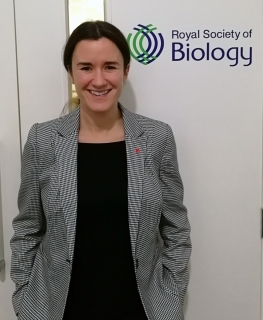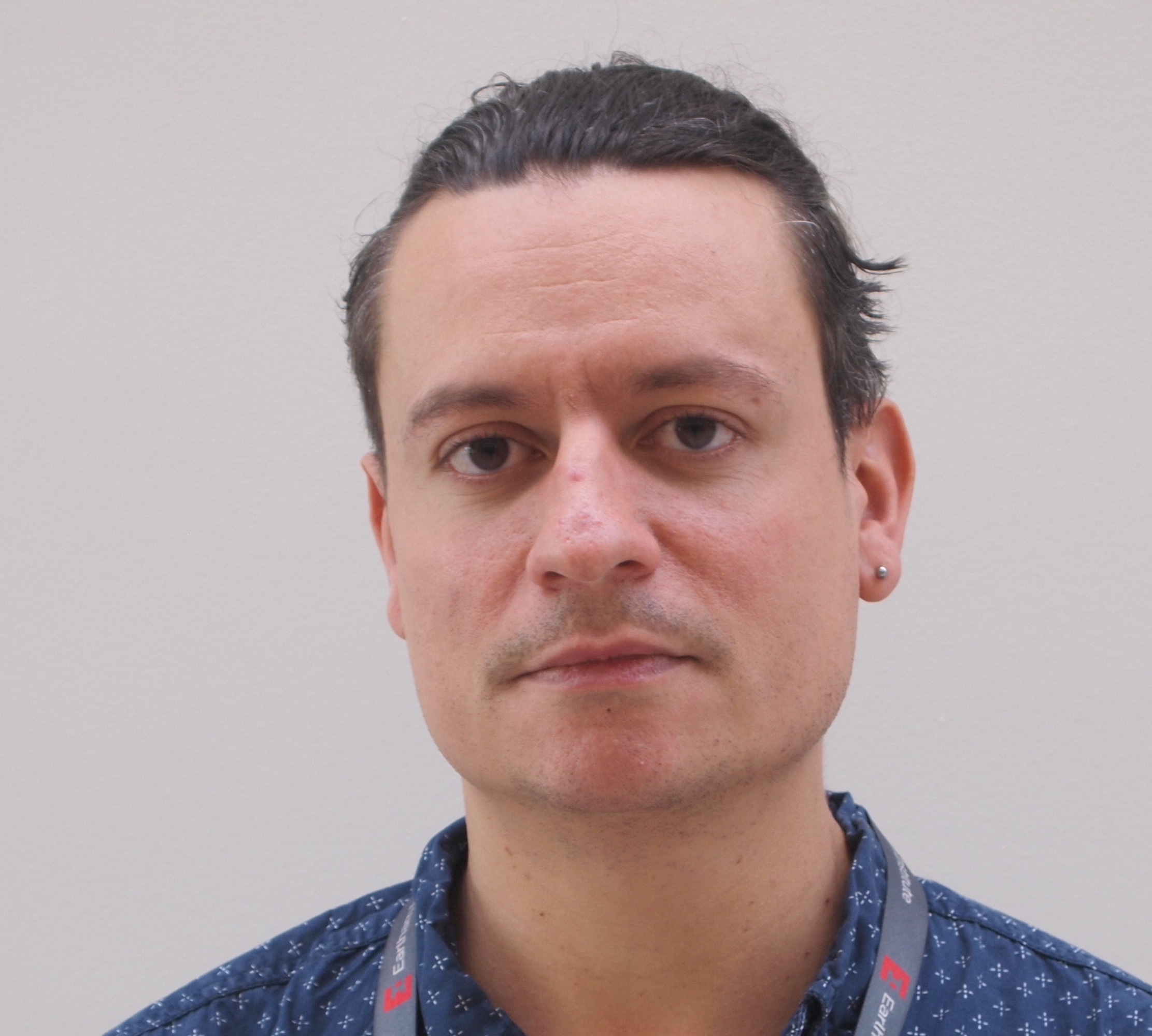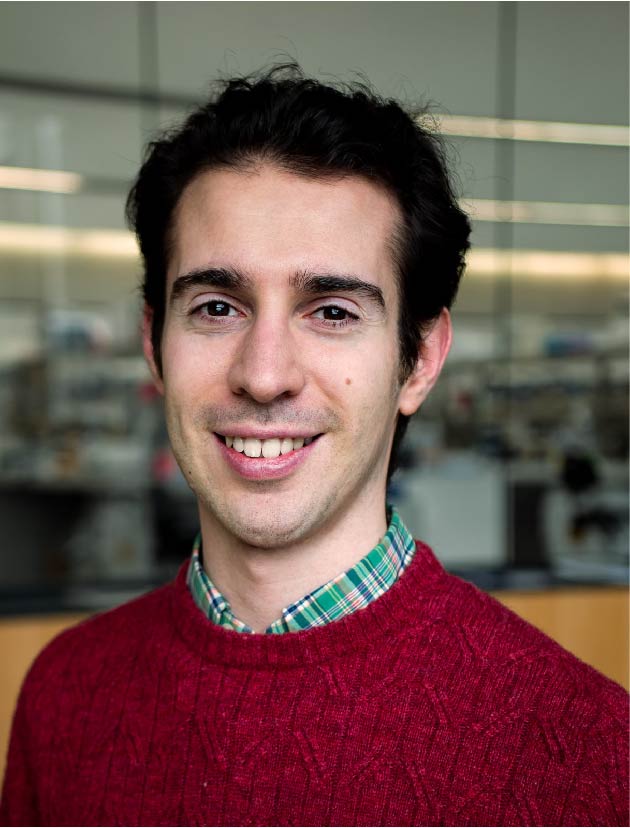Early Career Lecturers in Bioscience
The Early Career Lecturers in Biosciences (ECLBio) is an advisory group to the Heads of University Biosciences (HUBS). The group feeds in the views of early career staff to HUBS and the Royal Society of Biology activities.
Follow us on X (formally twitter) @ECL_HUBS
The ECLBio terms of reference are to:
- Highlight the key issues facing early career lecturers.
- Facilitate a network for early career lecturers to discuss and debate these issues.
- Run targeted events to provide support for early career lecturers and post-docs moving into lecturer positions.
- Provide support for early career lecturers to develop their subject-specific and pedagogical knowledge.
- Feedback to HUBS on discussions and initiatives developed by the group.
Members of ECLBio
Dr Chinedu Agwu (Secretary)
Dr Andrea Paterlini (Deputy Chair)
Dr Matt Bawn
Dr Kate C Randall
 Beth Lawry is a lecturer in the School of Biomedical, Nutritional and Sport Sciences at Newcastle University, also supporting students to find year-long and summer placements. Beth originally joined the school as a teaching fellow in 2017 and has since led several modules including first year practical skills, microbiology and immunology, study abroad year, and science communication. Prior to this position Beth was a Research Associate at Newcastle University working on novel biomarkers and vaccine targets for pathogenic bacteria.
Beth Lawry is a lecturer in the School of Biomedical, Nutritional and Sport Sciences at Newcastle University, also supporting students to find year-long and summer placements. Beth originally joined the school as a teaching fellow in 2017 and has since led several modules including first year practical skills, microbiology and immunology, study abroad year, and science communication. Prior to this position Beth was a Research Associate at Newcastle University working on novel biomarkers and vaccine targets for pathogenic bacteria.
Beth's PhD was on diagnostic biomarkers for Clostridium difficile and she also completed an MRes in Medical Microbiology at Newcastle University in 2012. Beth’s science career began with a BSc in Applied Biology from Northumbria University, graduating in 2006, before working as a biology technician, and upon returning from working abroad, a microbiology technician. Beth is keen to increase opportunities for students from all backgrounds and performs pedagogical research in working with students as collaborators.
 Chinedu Agwu completed her PhD in Women’s health at Manchester University, investigating the acute and chronic effects of statins on vascular function in Hypertensive Disorders of Pregnancy, with a major focus on Pre-eclampsia. Following this, she spent some time working as an Associate Medical Writer for a private healthcare communications company where she created oncology related scientific content for pharmaceutical companies such as MSD and Incyte. In 2021, Chinedu returned to academia and worked part-time as a Teaching Fellow in Biosciences and an Admissions Tutor at the University of Hertfordshire and part-time as a Scientist TBL Educator creating curriculum content for the new medical school at Brunel University London.
Chinedu Agwu completed her PhD in Women’s health at Manchester University, investigating the acute and chronic effects of statins on vascular function in Hypertensive Disorders of Pregnancy, with a major focus on Pre-eclampsia. Following this, she spent some time working as an Associate Medical Writer for a private healthcare communications company where she created oncology related scientific content for pharmaceutical companies such as MSD and Incyte. In 2021, Chinedu returned to academia and worked part-time as a Teaching Fellow in Biosciences and an Admissions Tutor at the University of Hertfordshire and part-time as a Scientist TBL Educator creating curriculum content for the new medical school at Brunel University London.
Currently Chinedu works full-time at Brunel Medical School as a Lecturer on a teaching and scholarship contract. In this role she teaches in the "Scientific Enquiry and Evidence-based medicine" and "Reproduction, Growth and Ageing" TBL teaching Sessions whilst also serving as a house tutor, SSC Project Supervisor and recently appointed as Academic Lead for Widening Participation. Externally she has also launched a science enterprise called BioSci Toolkit, a non-profit organisation supporting decision-making for students pursuing Bioscience degrees and careers, especially black and racially minoritised students.

Dr Matt Bawn studied physics and worked as an engineer in industry before studying a PhD in biochemistry. He undertook postdoctoral positions in New York and Peru and at the Earlham and Quadram Institutes in Norwich working on pathogen evolution, before joining the University of Leeds in July 2022 as a lecturer in bacterial genomics. Matt applies bioinformatics solutions to research questions concerning the evolution of bacterial pathogens via their interaction with the environment, their hosts and horizontal-gene transfer and implications for human health. His work addresses the biological evolution of pathogenicity and its impact to epidemiology and method development of tools for the detection of horizontal gene transfer in bacteria, Matt is the programme leader for a new fully online MSc in Precision Medicine and Genomic data science, the module leader for BIOL2114 Big Data and Omics Biology and is the incoming assessment lead for the School of Molecular and Cellular Biology. He is also the Faculty representative for the Working Group for Artificial Intelligence in Student Education. His teaching interests are in how to increase student engagement and outcomes through the application of digital tools and authentic assessments.

Andrea Paterlini is a teaching-focused Lecturer in Genetics Education at the University of Edinburgh. He obtained a BSc with Honours (Plant Sciences) from the University of Edinburgh before completing a PhD in Plant Sciences at the University of Cambridge. His research has focused on cell-cell and long-distance transport, processes with high relevance for plant growth and development. In the last few years, he has transitioned from core research roles to more education-oriented jobs in academia and in the third sector. He worked for the Gatsby Plant Science Education Programme, promoting plant science education across the UK, and then moved to the University of Sheffield as a University Teacher in Plant Molecular Biology. He started his current position in Edinburgh in 2023 and is heavily involved in teaching genetics via interactive lectures, workshops and practicals. He continues his research by involving students in the projects. Andrea is a HE Fellow with a keen interest for innovative pedagogical approaches and hopes to support the community of early career lecturers in developing their personal teaching philosophies.

Dr Kate Randall joined Northumbria University in September 2022 as a Lecturer within the Forensic Science team, as part of the Environmental Forensic research group. Through her research, she extracts genetic information (DNA and RNA) from environmental samples (e.g., soil, plant roots, sediment, freshwater, air), identifying and quantifying communities, to study ecological responses across a range of geographical, environmental and management scenarios. Predominantly, Kate’s research has focused on studying the effects of climate change, urbanisation and agricultural management on microbial communities. Understanding changes to microbial taxonomic and functional diversity can be extremely informative when paired with additional abiotic and biotic measurements, to better predict how perturbations will impact wider nutrient cycling and food webs. An additional branch of her research focuses on the use of environmental DNA (eDNA) as a tool for biomonitoring key endangered species such as the freshwater pearl mussel. Kate’s research spans spatial scales, from small and controlled lab settings, to semi-controlled mesocosms and large-scale field sampling, working within interdisciplinary fieldwork teams, travelling to a range of locations, from the remote Arctic to South Africa and places closer to home (e.g., UK and Ireland).
 Dr Alisha Aman is currently the Program Director for MSc in Clinical Trials at the College of Medical, Veterinary, and Life Sciences, University of Glasgow, in collaboration with the NHS Greater Glasgow and Clyde. She works closely with the NHS and aims to provide workplace skills-focused education, integrating the triple helix of academia, industry, and the NHS. She is currently also developing an MSc in MedTech Innovation in collaboration with the West of Scotland Innovation Hub and the College of Science & Engineering (University of Glasgow). She also is part of the Health Research Authority (HRA)’s Research Ethics Committees, and Community Committee. Alisha had trained as a geneticist first in India followed by her master’s and PhD in the UK under the British Heart Foundation studentship. Her expertise lies in using large scale genetic data to inform health outcome and drug effects. As a lecturer, and member of ECLBio, she hopes to bring forth her perspective as a neurodivergent immigrant woman in UK HE to narrow the gaps in equitable academic success in these marginalised groups.
Dr Alisha Aman is currently the Program Director for MSc in Clinical Trials at the College of Medical, Veterinary, and Life Sciences, University of Glasgow, in collaboration with the NHS Greater Glasgow and Clyde. She works closely with the NHS and aims to provide workplace skills-focused education, integrating the triple helix of academia, industry, and the NHS. She is currently also developing an MSc in MedTech Innovation in collaboration with the West of Scotland Innovation Hub and the College of Science & Engineering (University of Glasgow). She also is part of the Health Research Authority (HRA)’s Research Ethics Committees, and Community Committee. Alisha had trained as a geneticist first in India followed by her master’s and PhD in the UK under the British Heart Foundation studentship. Her expertise lies in using large scale genetic data to inform health outcome and drug effects. As a lecturer, and member of ECLBio, she hopes to bring forth her perspective as a neurodivergent immigrant woman in UK HE to narrow the gaps in equitable academic success in these marginalised groups.

Dr Shraddha Gang is Assistant Professor (teaching focused) in Biosciences at Coventry University. She was awarded PhD in Microbiology in 2018. Her research has focused on microbial strategies to enhance plant growth and development, with significant contributions to the understanding of plant-microbe-soil tripartite association and biofilms in nature.
In recent years, Shraddha has transitioned from core research roles to more education-oriented positions in academia. She has served as a Lecturer of Academic and Professional Practices at Coventry University and a Post-Doctoral Research Associate at Imperial College London. She contributes to teaching at post graduate level within School of Sciences at Coventry University with a strong emphasis on interactive and inclusive teaching methods. She is acting Course Director of BSc Biotechnology and involved in course development of new courses.
Shraddha is actively involved in mentoring and supervising research projects, providing academic guidance, and developing innovative games for staff development. She continues her research by involving students in projects related to Biotechnology and antimicrobial resistance. As an advocate for innovative pedagogical approaches, Shraddha is committed to supporting the development of early career lecturers and enhancing the overall student learning experience.


